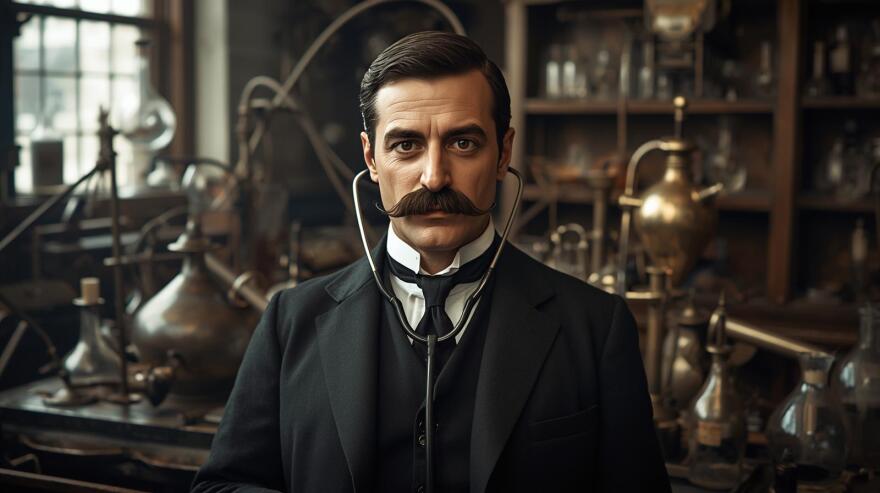On this day, Nov. 12, 1833, composer, chemist and medical doctor Alexander Borodin was born in St. Petersburg, Russia.
When he was a small boy, he used to pretend to be an organ grinder at home.
According to Grove Music online, the first music he wrote was a polka, and he created it to impress a girl. It was a case of “puppy love.”
When his family moved to a house near the regimental parade grounds, Borodin’s nanny took him out to hear the band. And when Borodin got back to the house, he was able to play the melodies he’d heard on the piano. His family soon arranged for flute and piano lessons.
Although he studied and wrote music, Borodin’s love for science - chemistry in particular - eclipsed his musical interests. Still, he didn’t let go of music.
He played chamber music to de-stress from scientific pursuits. And began to attend musical performances at a friend’s home. He even wrote and arranged music for the gatherings.
When Borodin was interning at the Second Military-Land Forces Hospital, he met composer Modest Mussorgsky, a newly commissioned officer and the two worked together.
Borodin was sent abroad for further studies in chemistry to Heidelberg, where he continued to pursue musical life.
He met and fell in love with a Russian pianist, who further fostered his interest in music. Borodin met Mily Balakirev at a party at a fellow doctor’s house and was brought into the fold of the so-called “Mighty Five” Russian composers, diving in to write a symphony at Balakirev’s guidance and encouragement.
His best-known work is the opera, “Prince Igor.” Its music was used in the popular song, “Stranger in Paradise,” from the musical, “Kismet.”
According to EBSCO, Borodin was an advocate for women's medical education. He also co-founded the School of Medicine for Women in St. Petersburg, Russia.



